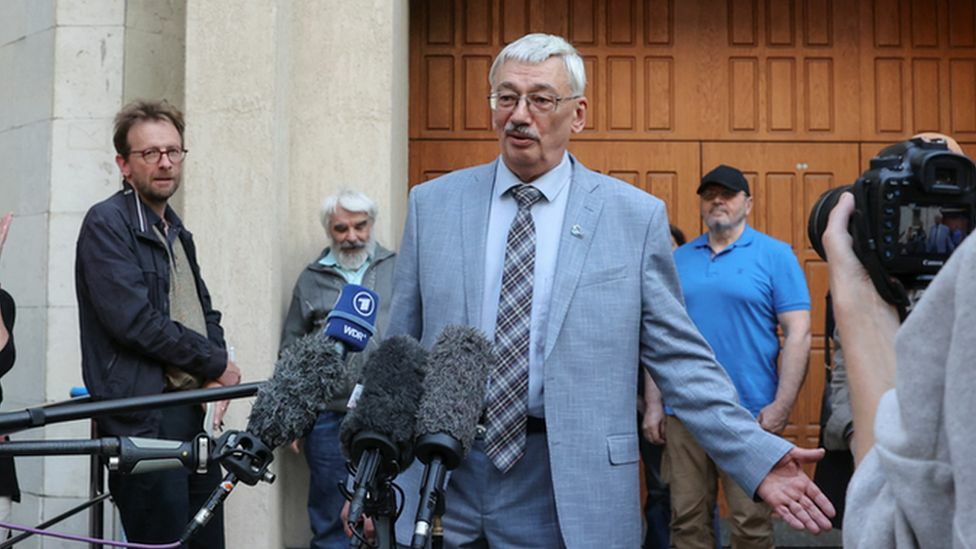Russian activist faces prison for discrediting army over Ukraine war

Oleg Orlov, a prominent Russian human rights defender, recently made a statement in a Moscow courtroom by showcasing a book titled End of the Regime, which discusses the collapse of totalitarian and fascist regimes. Orlov, a vocal critic of the Kremlin’s wars in Ukraine and against dissent in Russia, is on trial for allegedly breaching a law designed to suppress criticism of the country’s war efforts. If convicted, the 70-year-old activist could face up to three years in prison.
Orlov argues that prosecuting him for expressing his views on the war in Ukraine violates the Russian Constitution, which guarantees freedom of speech. He also contends that the conflict is against the interests of Russia and its citizens, and that claiming it preserves international peace and security is nonsensical. Despite the constitutional guarantee, Russians who publicly criticise those in power face significant risks, as the authorities have implemented a series of repressive laws to punish government critics and opponents of the war.
The “Law on Fakes” is one such tool, which criminalises the public dissemination of deliberately false information about the Russian armed forces. This legislation has been used to imprison Kremlin critics like Ilya Yashin, who received an eight-and-a-half-year sentence last year. Other examples include theatre director Zhenya Berkovich, charged with “justifying terrorism” for her anti-war poems, and anti-war activist Vladimir Kara-Murza, convicted of treason and sentenced to 25 years in a prison colony.
Orlov’s trial has been met with international condemnation, with the Council of Europe denouncing it as “a travesty of justice.” The Council’s Commissioner for Human Rights, Dunja Mijatovic, emphasises the need for strong and clear messages condemning such actions as unacceptable. In Russia, citizens continue to support political prisoners through events like letter-writing campaigns organised by Yabloko, one of the country’s few remaining liberal parties. These efforts demonstrate that, despite increasing repression, some Russians refuse to be silenced.
Latest Thailand News
Follow The Thaiger on Google News:
























